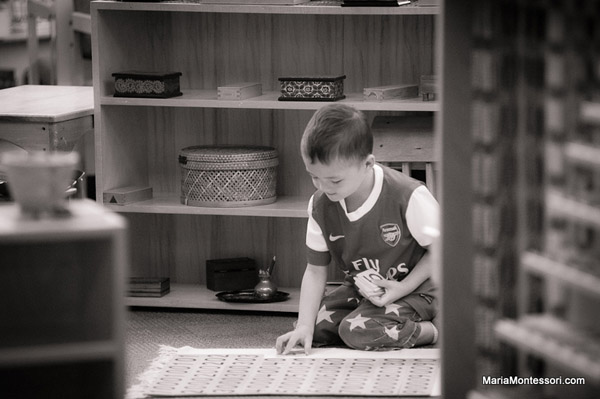
November 6, 2022
My husband, Zach, is a Montessori alumnus. He attended Montessori starting at age 3 through 6th grade, then transitioned into the local public school system. I’d like to use him as an anecdotal example in this post.
Zach is a bit of an anomaly. He is incredibly smart in many areas, but was a late bloomer, at least when it came to reading. He didn’t read well until the 2nd or 3rd grade. But, as Montessorians often know to expect, at some point in that year something “clicked on” and he began reading voraciously– his sensitive period for reading was just a bit later than most children. He was soon reading chapter books, and by 5th grade was reading at a high school level. In high school, he probably learned more from his independent reading than from school. He continues to read everything from science fiction to science journals and everything in between and is one of the best-read people I know.
Let’s contrast this with another learned skill – handwriting. Zach never had very good handwriting. In Montessori, where little is ever “assigned,” he was assigned calligraphy work, most likely because his handwriting was near illegible. He hated calligraphy and handwriting in general. To this day he still dislikes having to write anything by hand and rejoices in the fact that almost everything can instead be typed on an electronic device.
Compare these two scenarios: he was a late bloomer with reading, but allowed to develop the skill at his own pace and eventually blossomed into a lifelong voracious reader. But he was forced to work on handwriting against his will, and even today still holds a deep disdain for writing by hand.
Does this sound familiar? How many of us who attended traditional schooling disliked reading since school had turned it into a boring chore? The idea of reading “for fun” was laughable. I fear many children have turned off the joys of reading because of the way it is assigned. I realize Zach’s example is a bit extreme, but the underlying principle holds true for most of us. Assigning a child to work on a particular subject when she is neither interested nor ready for it may result in superficial learning of that subject, which will be quickly forgotten (unlike the deeper lesson that the subject itself was “boring” and “hard”). If we wait until the child develops an interest in that subject, however, she will likely devote hours to it without being asked simply because it is fun, and the learning that takes place will be deeper and much more meaningful.
The magic of Montessori lies in having every option available to the child while waiting for them to become interested in it. If we push too early, we risk damaging their interest in that particular skill or subject. But allow them to follow their own interest, and they may blossom and grow.